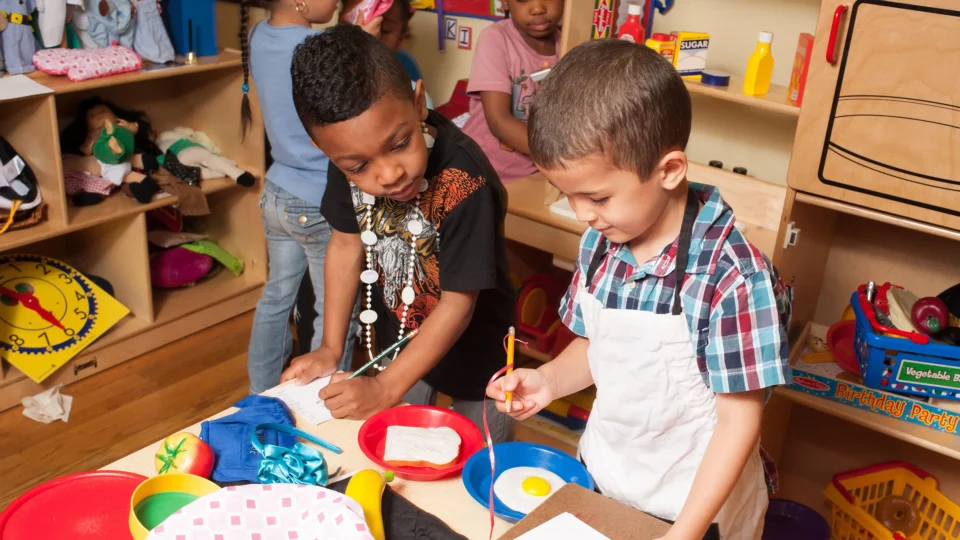Children have an incredible knack for turning the simplest things into whole new worlds. A cardboard box might become a castle, a stick might suddenly be a sword, or a blanket over two chairs could transform into a secret den. While adults might see clutter on the floor, children see possibilities. And that’s exactly why imaginative play is so powerful.
So, what are some of the benefits? Here are ten that really stand out:
Language Growth
When children act out stories, they stretch their vocabulary without even noticing. A pretend “shopkeeper” suddenly needs to use words like “receipt,” “customer,” or “change.” It’s a natural, playful way of learning new language.
Problem-solving Skills
What happens if the dragon blocks the bridge, or the tea party guest is missing a spoon? Children quickly learn to adapt, change the story, or find another solution. Those small choices build flexible thinking.
Emotional Expression
Children can play out their feelings in a safe space. A shy child might roar as a lion, or a worried child might set up a pretend hospital. This gives them a way to express things they may not yet have the words for.
Social Development
When kids play together, they learn to take turns, share, and listen. Arguments about “who gets to be the pirate” might feel minor, but these moments teach negotiation and cooperation.
Confidence Building
Trying out different roles, doctor, firefighter, parent, gives children the chance to see themselves in different lights. It’s a gentle way of building belief in their own abilities.
Creativity and Imagination
This one’s obvious, but worth saying: making up worlds, rules, and characters feeds creative thinking. And creativity isn’t only about art, it’s useful in science, problem-solving, and even daily life.
Fine and Gross Motor Skills
Pouring imaginary tea, building a pretend rocket, or dressing up as a superhero all involve movement. Whether small hand movements or big body actions, play naturally builds coordination.
Resilience
Things rarely go perfectly in imaginative play. Towers topple, plans change, and sometimes “bad guys” win. Learning to try again and keep the game going fosters resilience without pressure.
Family Connection
Adults who join in, even for just ten minutes, often find it’s a lovely way to bond. It doesn’t require special toys or money, just a willingness to be a bit silly. That shared laughter lingers.
Preparation for the Future
Through imaginative play, children rehearse real-life scenarios. From “being a teacher” to “looking after a baby doll,” play helps them process what they see around them. It’s one reason why children who feel safe and supported in play often grow into adults who are adaptable and empathetic.
And for anyone thinking about opening their home to children, play is one of the most valuable tools to help them feel secure and understood. Those moments of silliness can make all the difference. If you’re curious about how to offer that kind of support, you might like to explore how to become a foster parent.
Imaginative play isn’t just a way to pass the time, it’s a powerful part of childhood. It builds language, problem-solving, confidence, and creativity, while also helping children manage emotions and connect with others. From developing motor skills to preparing for life’s bigger challenges, play lays down foundations that last well beyond childhood.

